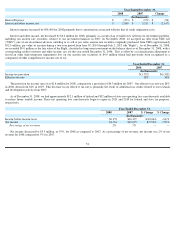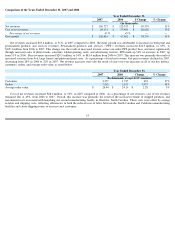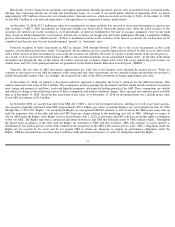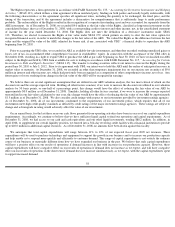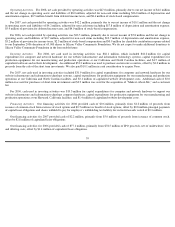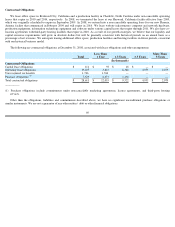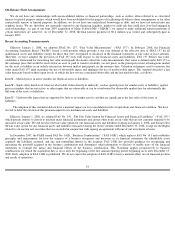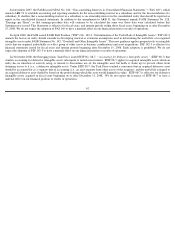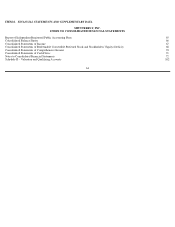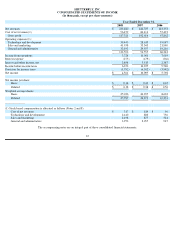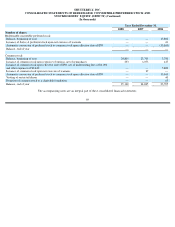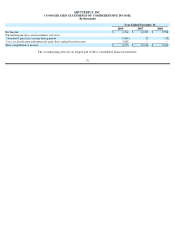Shutterfly 2009 Annual Report Download - page 64
Download and view the complete annual report
Please find page 64 of the 2009 Shutterfly annual report below. You can navigate through the pages in the report by either clicking on the pages listed below, or by using the keyword search tool below to find specific information within the annual report.
In December 2007, the FASB issued SFAS No. 160, “Non-controlling Interests in Consolidated Financial Statements” (“FAS 160”)
which
amends ARB 51 to establish accounting and reporting standards for the non-
controlling interest in a subsidiary and for the deconsolidation of a
subsidiary. It clarifies that a noncontrolling interest in a subsidiary is an ownership interest in the consolidated entity that should be reported as
equity in the consolidated financial statements. In addition to the amendments to ARB 51, this Statement amends FASB Statement No. 128,
"Earnings per Share"; so that earnings-per-
share data will continue to be calculated the same way those data were calculated before this
Statement was issued. This Statement is effective for fiscal years, and interim periods within those fiscal years, beginning on or after December
15, 2008. We do not expect the adoption of FAS 160 to have a material effect on our financial position or results of operations.
In April 2008, the FASB issued FASB Staff Position ("FSP") No. 142-3, "Determination of the Useful Life of Intangible Assets". FSP 142-
3
amends the factors an entity should consider in developing renewal or extension assumptions used in determining the useful life or recognized
intangible assets under FASB Statement No. 142, "Goodwill and Other Intangible Assets". This new guidance applies prospectively to intangible
assets that are acquired individually or with a group of other assets in business combinations and asset acquisitions. FSP 142-
3 is effective for
financial statements issued for fiscal years and interim periods beginning after December 15, 2008. Early adoption is prohibited. We do not
expect the adoption of FSP 142-3 to have a material effect on our financial position or results of operations.
In November 2008, the Emerging Issues Task Force issued EITF No. 08-7, “ Accounting for Defensive Intangible Assets ” (EITF 08-
7) that
clarifies accounting for defensive intangible assets subsequent to initial measurement. EITF 08-
7 applies to acquired intangible assets which an
entity has no intention of actively using, or intends to discontinue use of, the intangible asset but holds it (locks up) to prevent others from
obtaining access to it (i.e., a defensive intangible asset). Under EITF 08-
7, the Task Force reached a consensus that an acquired defensive asset
should be accounted for as a separate unit of accounting (i.e., an asset separate from other assets of the acquirer); and the useful life assigned to
an acquired defensive asset should be based on the period during which the asset would diminish in value. EITF 08-
7 is effective for defensive
intangible assets acquired in fiscal years beginning on or after December 15, 2008. We do not expect the issuance of EITF 08-
7 to have a
material effect on our financial position or results of operations.
62


